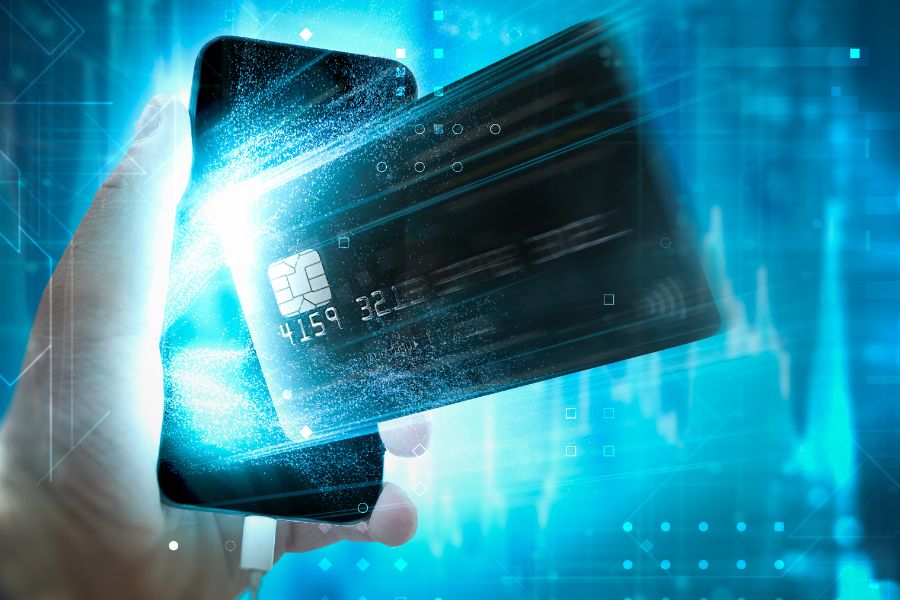The Ethics of Cyber Security: Balancing Privacy and Security
September 12, 2023, 5 min read
Cyber security is paramount in today’s interconnected world, affecting people, companies, and governments. Cybersecurity experts face various ethical challenges as the value of digital data and the sophistication of cyberattacks continue to rise.
Cybersecurity’s most significant ethical challenge is finding a happy medium between individual privacy and network safety. Experts in cyber security typically have to gather, analyze, and retain copious amounts of personally identifiable information during their work, protecting data from cyberattacks. As a result, there is a conflict between keeping private information secure and honoring people’s right to anonymity. This post will walk through cyber security ethics and cyber security ethics examples.
The Importance of Ethics in CyberSecurity
Cyber attacks frequently target private and confidential information. You must have the complete trust of the people you have employed to protect this sensitive data, as its loss could have terrible consequences for your clients. Professionals in the cyber security industry have access to the very information they are sworn to protect. Employees in these sectors must. Therefore, they value ethics highly and protect their clients’ personal information.
Because of the rapid growth and change in the IT industry, having a solid moral compass is essential. Your team must ascertain what’s ideal for the firm and its customers. You may not always be able to forecast the specific situations your employees will face, but providing them with a solid ethical basis will help them act in their best interests despite their challenges.
Balancing Privacy and Security in CyberSecurity
To be left alone or free from interference or disturbance best describes the concept of privacy. “information privacy” refers to an individual’s entitlement to a measure of say over the collection and use of personally identifying information. Information privacy is becoming increasingly difficult to maintain as data capture and transport speeds increase at the speed of light.
Data applications are becoming increasingly sophisticated (often invasive) as technology advances. Thus, companies face a complex risk matrix when safeguarding sensitive customer information. Therefore, privacy has rapidly become the most pressing consumer protection issue, if not the foremost citizen protection concern, in the international information economy.
A company’s ability to obtain, handle, and maintain sensitive data (such as personally identifiable information and other regulated data) honestly and transparently is what ” privacy ” means from a business perspective.
In recent times, encryption—the question of whether computer companies should be allowed to develop programs that encrypt their users’ messages so that only the intended recipients, including governments, can read them—has been at the center of the debate. It’s a debate that needs the attention of leaders and citizens everywhere.
Finding a happy medium between security and privacy is essential when it comes to business uses. IT tracking risks employee privacy; mobile use unsupervised endangers the firm. Balance privacy and security for sensitive data protection. Find solutions with network visibility and suitable depth for spotting threats while preserving privacy.
Ethical Considerations in Cyber Security Policies and Practices
Amid diverse actions and legal mandates, cyber pros grapple with ethics. The severity of consequences matters. Cyber ethics span modern life, from economy to safety, causing harm. Risks harm rights: privacy breaches, job loss due to breaches. To act, understand threats for optimal solutions.
The Role of Government in Ethical Cyber Security
The government must play an integral part in the field of cyber security. Societies and economies cannot flourish without reliable and safe digital infrastructure.
A government will often employ a national cyber security agency to set and oversee the country’s comprehensive cyber security strategy. To do so, we must create a comprehensive portfolio of programs constituting a national cyber security strategy.
By defining cyber security standards and mobilizing responses to crimes, these programs hope to provide the highest possible level of safety for all government agencies and departments.
The Role of Corporations in Ethical Cyber Security
First, it’s essential to highlight why businesses are central to cybersecurity debates. The truth is that cyberattacks happen every day, and some of them are large and far-reaching. Hackers are known to specifically target data storage that includes sensitive company information and large amounts of personal data. The latter is usually more intriguing because it allows for widespread fraud.
Meanwhile, businesses appear unconcerned about the risks they may be facing. Despite data’s sensitivity (Guiora, 2017), many prefer reacting, not preventing hacks. Costs deter cyber solid defense. Yet, this hampers law enforcement and hurts stakeholders (Guiora, 2017). Inaction costs rise with cybersecurity expenses (Johnson, 2015). Firms need ongoing self-assessment to curb leaks.
The Role of Individuals in Ethical Cyber Security
Professionals in this field secure an organization’s systems, data, programs, and networks by employing the same technology and organizational framework that hackers use, but in an ethical manner. The primary goal of cybersecurity is to prevent data breaches, both inside and outside of a business.
The job of a cyber security expert is to prevent unauthorized users from accessing private data (such as financial accounts or credit card numbers) within an organization’s network. The organization’s credibility will be severely affected if people can access this data through unrestricted channels like the dark web. Fewer and smaller businesses will make it through the downturn. Legal action may be taken against a company if client data is compromised.
Ethical Challenges in Cyber Security Decision-Making
Making the “right choice” and understanding your justifications are fundamental to ethical decision-making. Organizational ethics are a direct reflection of the organization’s mission. Organizational ethics begins with the question, “Why do we do what we do?” When protecting sensitive information online, it’s essential to make choices that respect the values of the data’s owner and the organization. Ethical guidelines ought to lay out procedures to be followed to guarantee moral judgments are made.
Cybersecurity professionals always face ethical dilemmas. Organizations that deal with private information must promote a culture of integrity from the top down and at every level of the business. This article concludes that pursuing such commendable principles as transparency and honesty through ethical decision-making leads to better trust in the marketplace and more significant revenues.
Conclusion
In conclusion, cybersecurity specialists must carefully consider a broad spectrum of ethical concerns. They need to balance privacy, security, openness, and accountability. These problems require cybersecurity experts to be guided by ethical concepts, including privacy protection, openness, and responsibility. This will assist in making sure those ethics in cyber security and cyber security measures align with the ideals of a democratic society.




























